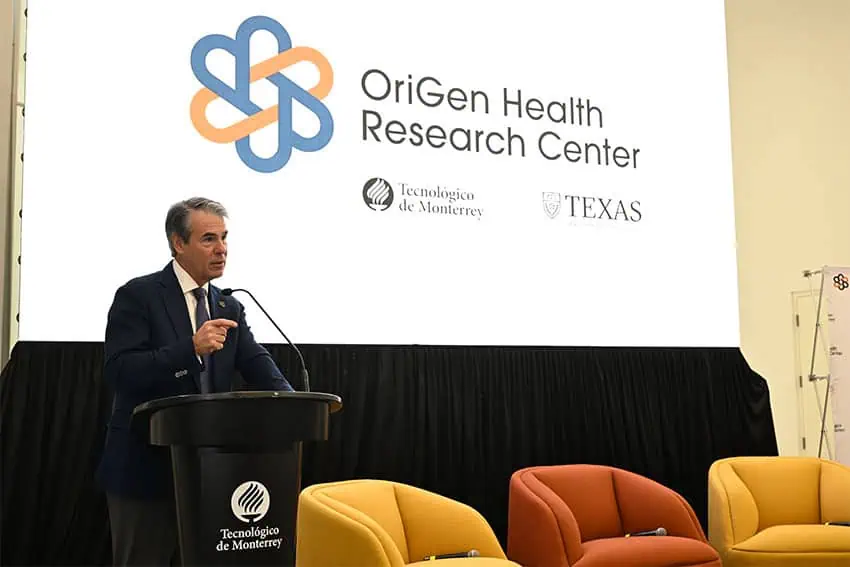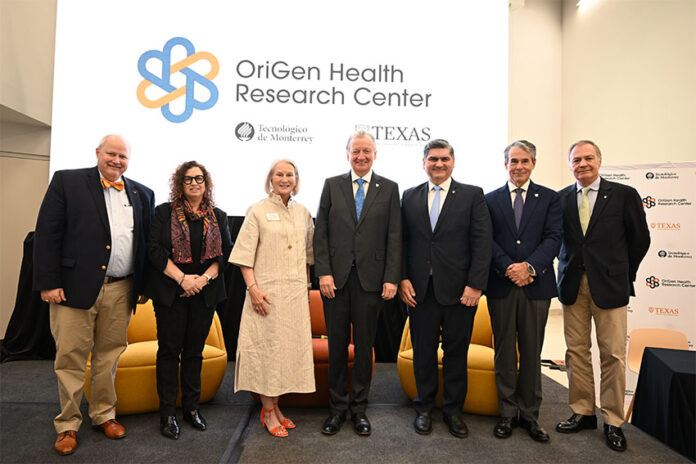Tec de Monterrey and the University of Texas at Austin (UT) announced plans this week to establish a research center to advance the investigation of health issues affecting the Latino community in the Americas.
The partnership will result in the creation of the OriGen Health Research Center, which will “explore the root causes of diseases through cutting-edge technologies, interdisciplinary expertise and a unique biobank,” according to a press release.
A press release introducing the partnership acknowledged that “chronic diseases such as obesity, diabetes, heart disease and certain cancers cause nearly 75% of deaths worldwide” and research has shown that Latino populations “experience these chronic diseases at a disproportionate rate.”
However, more research is needed to understand why and to develop more comprehensive treatment strategies for all patients, officials from both institutions say.
“With a strong focus on research, education and active engagement with the Latino community, OriGen Health Research Center will ensure that the proposed solutions are practical and accessible,” said Guillermo Torre-Amione, rector of TecSalud at the Monterrey Institute of Technology and Higher Education (commonly known as Tec de Monterrey).
The center will take care to consider the cultural and social reality of individuals so as “to offer solutions that impact people’s lives,” he added.
The UT partnership comes as the Tec de Monterrey aims to strengthen its global reputation for academic excellence and applied research.
Andreas Matouschek, interim dean of the UT College of Natural Sciences, lauded the partnership as an exciting time to bring both universities together “to save and improve lives and foster the exchange of knowledge.”
“By joining efforts and perspectives, the two institutions will promote scientific innovation and help solve major health and economic problems affecting people across the Americas,” he said.
Faculty members in fields such as genetics, obesity, human development, statistics, artificial intelligence (AI) and machine learning will work “to uncover the biological and social drivers of chronic disease.”

The OriGen Health Research Center is intended to become a cutting-edge research center that “combines personalized medicine and community-driven approaches to transform disease prevention, understanding and treatment.”
By using personalized, data-driven approaches, OriGen aims to develop targeted prevention and treatment strategies and improve the lives of all patients.
“The main goal is to develop healthcare solutions that are more suitable for Latino communities,” says UT’s Gabriela Livas, the co-director of the research center. “We hope to understand the risk factors, physical changes, genetic challenges, stress, biology, family dynamics, diet, and all the different aspects that can contribute to health and well-being.”
To explore the root causes of diseases, researchers will leverage the OriGen Project biobank, a massive genomic and clinical/epidemiological databank based at Tec de Monterrey.
Experts from UT’s College of Natural Sciences, Dell Medical School and College of Pharmacy will work with partners from Tec de Monterrey’s Institute for Obesity Research, Center for Early Childhood and its medical school.
With reports from University of Texas at Austin, Tec Science, Tec de Monterrey and Mexico Business News
